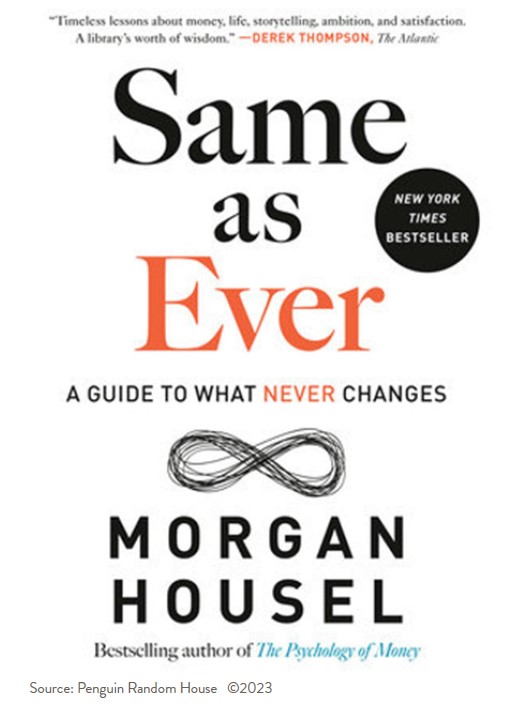A look back at 2024 will cause many to shake their heads at the wild and seemingly abnormal events that occurred over the course of the year.
In the U.S, the incumbent president was effectively removed from the ballot by his own party, the previous president was convicted of 34 felonies and then won reelection after losing his first attempt, multiple hurricanes and storms battered the South, and a full solar eclipse was visible over parts of the country. Around the world, two major conflicts raged on through the year in Ukraine and the Middle East, the Assad regime fell in Syria, floods hammered Europe, a short-lived martial law was enacted in South Korea, and elections were disputed in multiple countries including Venezuela and Romania. And that is only a small sample of the global events that shaped 2024.

Uncertainty is high. We feel like times are more precarious – more unprecedented – now than they’ve ever been. But as Morgan Housel outlines in his bestselling book from 2023, Same as Ever: A Guide to What Never Changes, some things are in fact the same and stay the same – especially human behavior. Yes, our world continues to change, but every year is full of wild and historic events when viewed through a short-term lens.
Let’s take some events with low probabilities of occurring, for example, pandemics, floods, hurricanes, recessions, political collapse, etc. Housel notes that even if the odds of these events occurring are 1-in-100, there are a multitude of these possible (low probability) events that could occur at any moment. That makes the chance of any event occurring relatively high. Both traditional news and social media revel in hype as a matter of course, and when combined with our increasingly intertwined world we are more likely to hear about tragic events in real-time and in great detail. Consider our forebears two hundred – or even just fifty – years ago who never would have learned that many of these events happened. On top of that, the population and the global economy has expanded significantly over those same time periods, increasing the number of possible events.
We also are hardwired to pay more attention to risks, and news outlets are well-aware of this fact. Given the deluge of negative information, is it any wonder we harbor increased levels of fear or doubt about the state and future of the world?
Housel also points out that our ability to predict the unknown risks that will actually come to dominate our future is not only poor in the medium- to long-term, but also in the very short-term. As he outlines in his book, members of the National Economic League in 1930, that is, a year into the Great Depression, voted unemployment as the 18th biggest problem in the U.S. It was still only in 4th place in 1931! And as we all remember, the 9/11 terrorist attacks, the Great Recession in 2008, and the COVID-19 pandemic were bolts from the blue.
With that context, how should we think about our pessimistic predictions on the turbulent outcomes of 2024 and their potential impacts in 2025 and beyond? It’s not that there are no risks, it’s that the big ones are unlikely to be these risks. And Housel does not counsel that we shift toward extreme optimism but rather a balance of optimism and pessimism, which is necessary for progress. Pessimism helps us, he says, “prepare for risks before they arrive.” On the other hand, “the belief that things can, and will be, better… is one of the most essential parts of everything from maintaining a sound relationship to making a long-term investment.”
We agree with Housel, the “best financial plan is save like a pessimist and invest like an optimist.” Don’t obsess over the “unprecedented” risks you perceive in front of you. It will likely not only be incorrect but also deleterious to your health and investment portfolio.